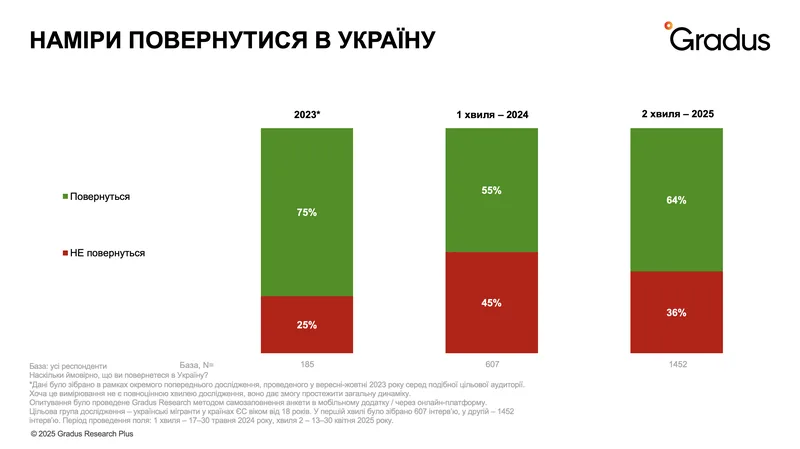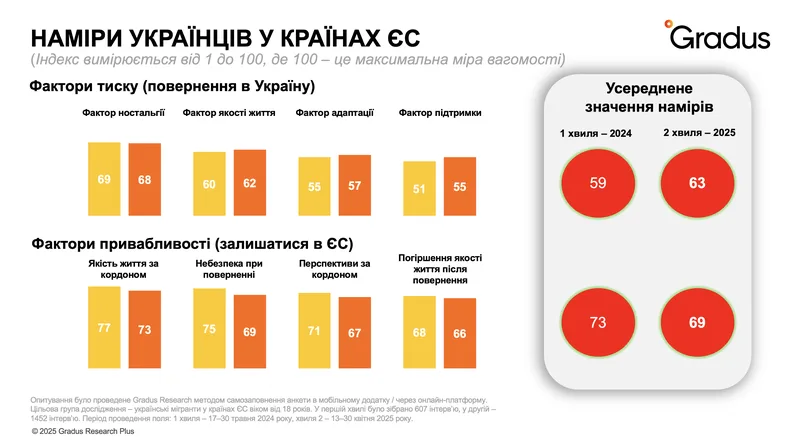In April 2025, Gradus Research conducted a second wave of surveys on the mood of Ukrainian migrants in the European Union. The study, published in August, showed that the emotional desire to return home is growing, but rational factors continue to keep a significant portion of people abroad.
Read also: Fewer Ukrainian refugees plan to return home
Are Ukrainians ready to return?
In 2025, 64% of respondents said they wanted to return to Ukraine. This is more than last year (55%), but less than in 2023, when the readiness rate was 75%. According to the researchers, these fluctuations reflect the complex balance between the emotional desire to return and the realistic conditions that prevent them from doing so.

What influences the choice
The main incentives for returning include nostalgia for home, a sense of better quality of life in Ukraine, difficulties in adapting to a new environment, and expectations of support from one’s social circle. Emotional attachment and belief in a better future at home have the strongest influence.
However, the decision to remain in the EU is linked to a sense of stability: higher standards of living, safer conditions, broader prospects for children, and fear of the difficulties that would follow a return.

Read also: Finland to reduce the number of refugee centres
Dynamics of factors
Compared to the previous year, there has been an increase in motivational factors and a slight decrease in deterrent factors. However, the overall index indicates a strengthening of the EU countries’ position as a place of long-term residence.
The researchers also point out that the results are influenced by the information context. During the survey in April 2025, there were public statements about possible negotiations and increased support for Ukraine from the United States, which could have temporarily fuelled expectations of positive change.
Research context
“There is an emotional desire to return, but the deterrent factors remain stronger. In 2025, the leading reason for not returning was the higher quality of life abroad, while last year the main deterrent factor was security,” said Yevheniia Blyzniuk, sociologist and director of Gradus Research.
The survey was conducted using a self-completion questionnaire in the Gradus mobile app. A total of 1,452 Ukrainian migrants aged 18 and older living in EU countries participated. Fieldwork took place between 13 and 30 April 2025.
Read also: France plans to change the status of Ukrainian refugees



